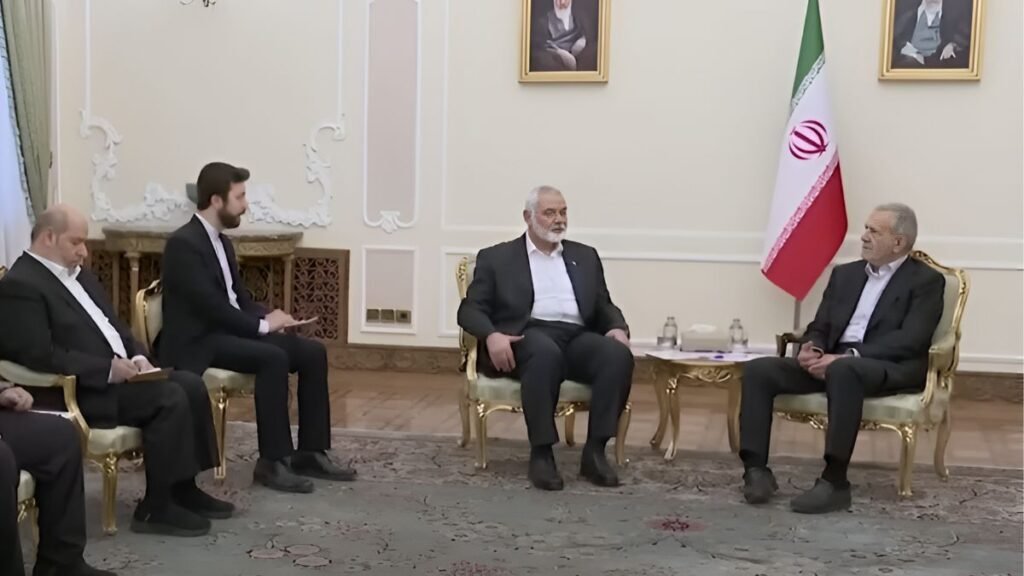Tehran, Iran — The Middle East faces heightened tensions following two back-to-back developments that have left the region on edge. The assassination of Hamas Leader Ismail Haniya, in Tehran has drawn widespread condemnation and increased fears of further conflict.
Details of the Attack
Haniya was killed early Tuesday morning in an explosion in northern Tehran, shortly after attending the inauguration of Iran’s newly elected president. Iranian state media reported that an airborne guided projectile struck the building where Haniya was staying, resulting in his death and that of his bodyguards. While Hamas quickly blamed Israel, calling it a “Zionist strike,” Israel has not commented on these accusations.
Regional and Global Reactions
Former Iranian Foreign Minister Javad Zarif condemned the assassination, accusing Israeli Prime Minister Benjamin Netanyahu of pushing the region toward catastrophe. Iran’s Supreme Leader, Ayatollah Khamenei, has vowed harsh punishment for the attack on what he described as a guest in Iran.
Strategic Implications
Haniya was a key figure in the stalled ceasefire talks between Israel and Hamas. His assassination marks a significant blow to these negotiations, which had been ongoing despite numerous setbacks. Analysts suggest that the precision of the attack points to a highly targeted operation, raising questions about how such a breach of Iranian security could occur.
Broader Regional Impact
The assassination follows closely on the heels of another targeted killing in southern Beirut, where a senior Hezbollah commander was killed in an Israeli airstrike. These events have compounded fears of a broader conflict involving Hezbollah, a key Iranian ally.
Iran, feeling insulted and violated by the breach of its sovereignty, is expected to respond, though the nature of this response remains uncertain. The situation puts additional strain on an already volatile region, with potential repercussions for Lebanon, Israel, and Iran.
U.S. Involvement and Diplomatic Efforts
U.S. Secretary of State Antony Blinken has stated that the United States was not involved in the attack on Haniya. However, there are questions about whether Israel informed the U.S. of the operation beforehand. The incident raises concerns about the current state of U.S.-Israel relations and the role of U.S. diplomacy in de-escalating the situation.
Future of Peace Talks
The assassination casts a long shadow over the already fragile peace process. Qatar, which has been hosting mediation talks, has expressed strong concerns about the impact of Haniya’s death on negotiations. Critics of Israeli Prime Minister Netanyahu argue that such actions serve to prolong conflict for political gain.
Conclusion
As the region braces for potential fallout, the focus remains on how Iran will respond to this bold attack on its soil. With all parties involved keen to avoid a full-scale war, the coming days will be critical in determining whether this incident sparks a wider conflict or if diplomatic efforts can bring a measure of stability to the region.


